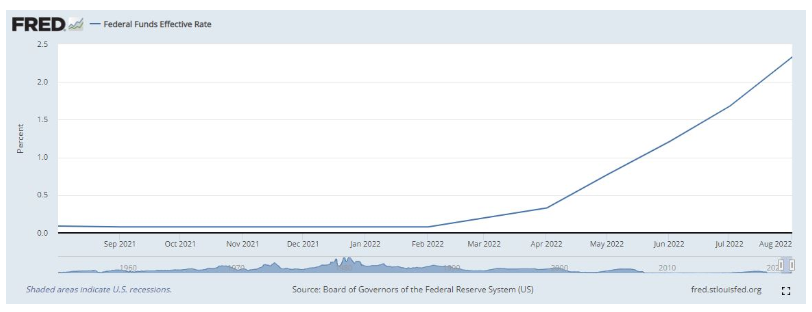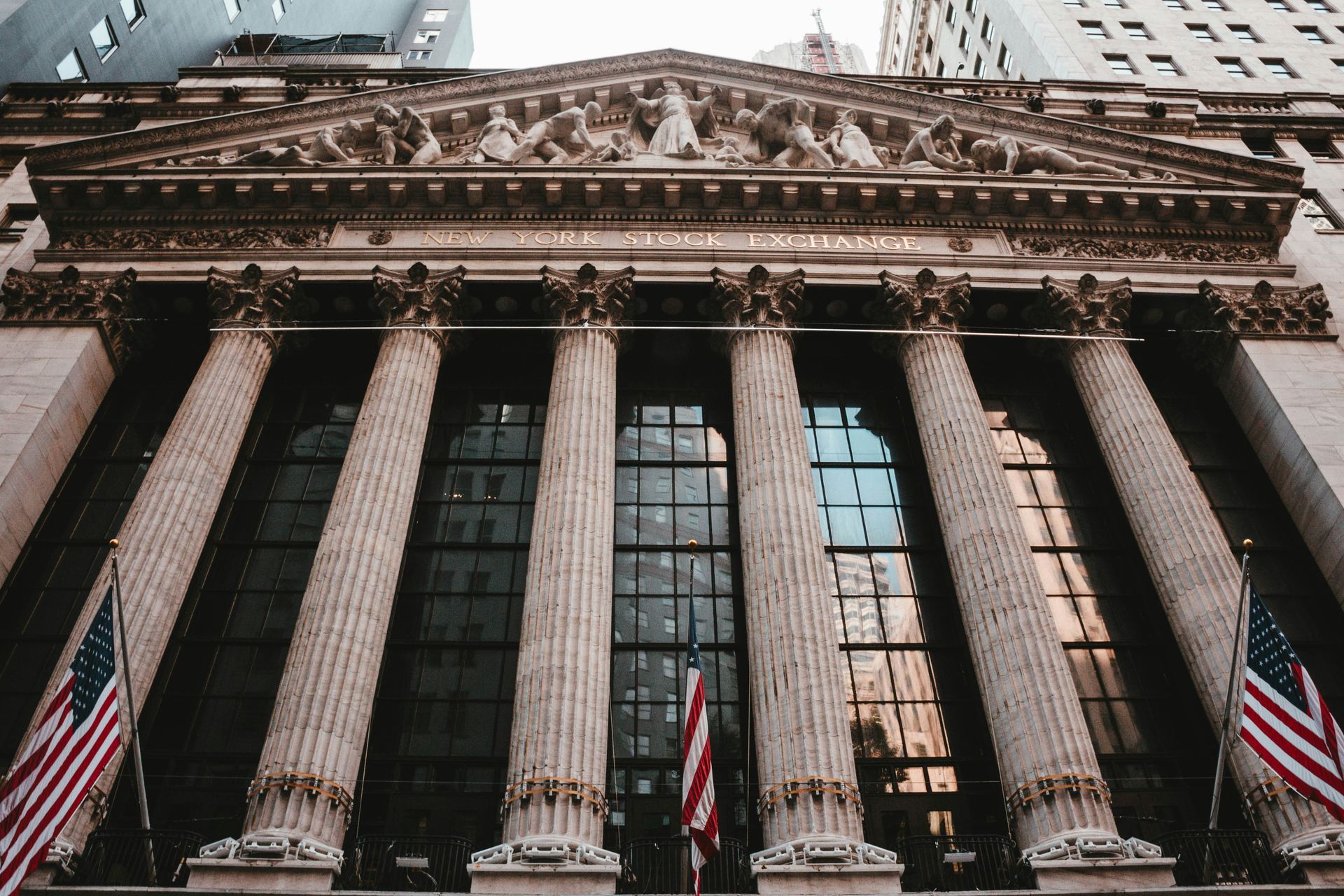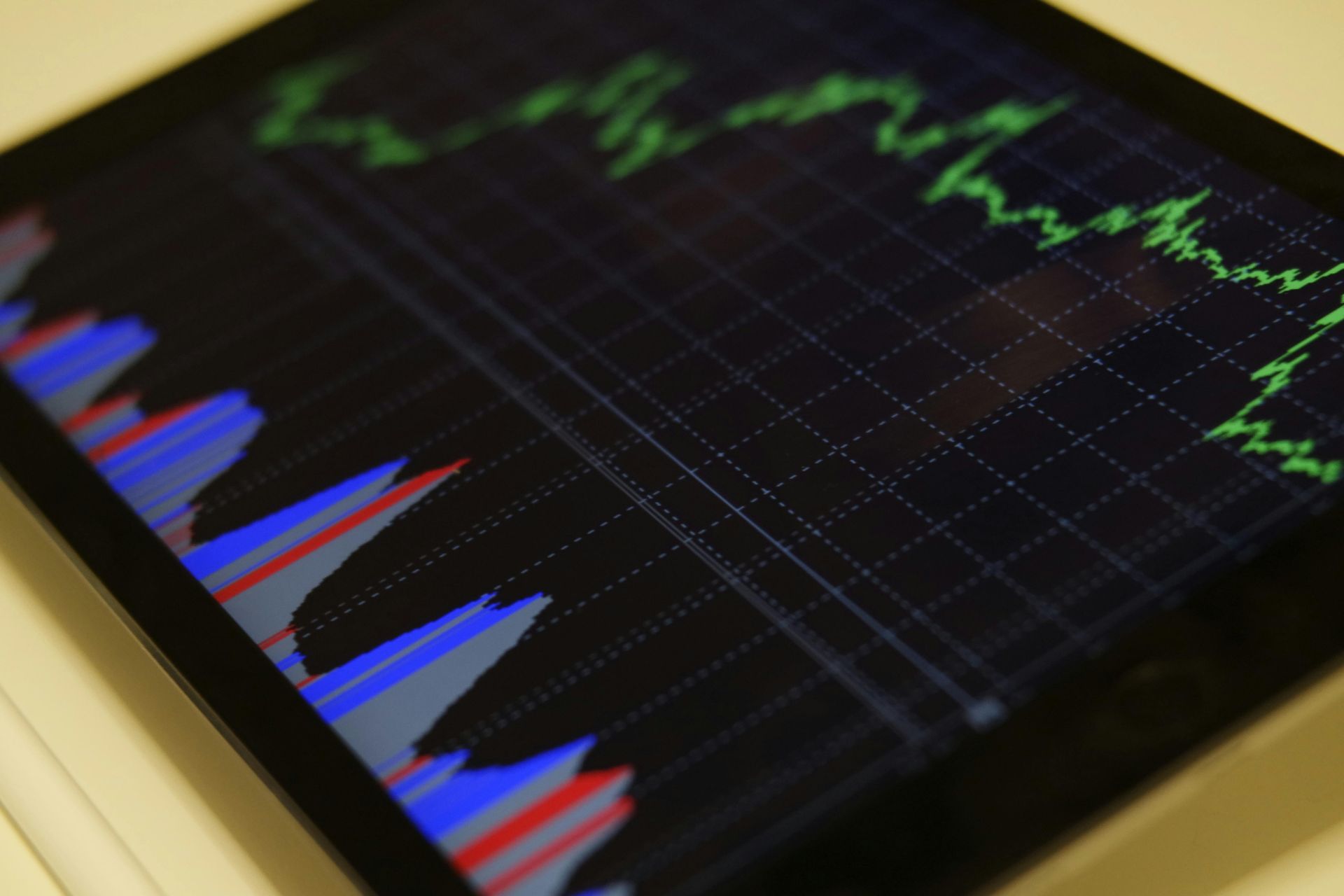What do higher interest rates mean for me?
We are currently experiencing interest rate hikes at a pace not seen since the early 1980’s. Year-to-date the Federal Reserve has raised the Federal Funds Rate - the interest rate that banks charge each other to borrow or lend excess reserves overnight - from 0.25% to 2.50%, with another 0.75% increase expected this month. As was the case in the 80’s, the Fed is trying to bring down inflation by reducing demand with rising rates. While the reason was the same, the Federal Funds Rate reached a high of 20% (that’s not a typo) in 1980 and 1981, compared to under 3% today.

As mentioned above, inflation is the driver of the rate increases. Many factors have contributed to the onset of inflation including supply chain issues related to Covid, the war in Ukraine, and labor shortages. Without question, the primary cause was the $5 Trillion Pandemic Stimulus authorized under US government programs. This massive influx of cash created a prime opportunity for inflation to gather steam.
Now that the Fed is taking action to bring inflation down, what do the rising rates mean to everyday people?
Let’s start with the positive. For most of the last decade, yields on conservative investments such as money markets, CDs and Treasuries were next to nothing. Today, you can find money market funds yielding over 2.2% and likely to rise in the short-run. Anyone willing to lock into an FDIC insured CD with a one-year maturity can see rates approaching 3.4%. Treasury Bonds - considered to be risk-free due to the “full faith and credit” backing of the US government - have yields of approximately 3.5% for a one-year maturity.
Rising interest rates typically have a negative impact on housing values. Most people borrow when purchasing a home, and the higher the rate on one’s mortgage the less affordable houses become. 30-year mortgage rates have almost doubled from the beginning of 2022 to today where they stand close to 6%. This has and will continue to drive down demand for new housing and in turn bring down prices. We would argue rising rates were necessary to moderate the housing market which has seen significant (and unsustainable) price gains since the Covid Pandemic.
Effects on the stock market remain unknown - however interest rate hikes typically add volatility and have the potential to reduce earnings expectations for companies due to reduced demand and higher borrowing costs. As the Fed continues to work towards its goal of taming inflation, we expect continued volatility in the market. The takeaway is that many analysts believe we’re nearing the end of this cycle as we are starting to see some positive inflation indicators in recent weeks - with lower gas prices being the most notable.
As always, if you have questions or concerns about your individual situation, please don’t hesitate to contact us.












